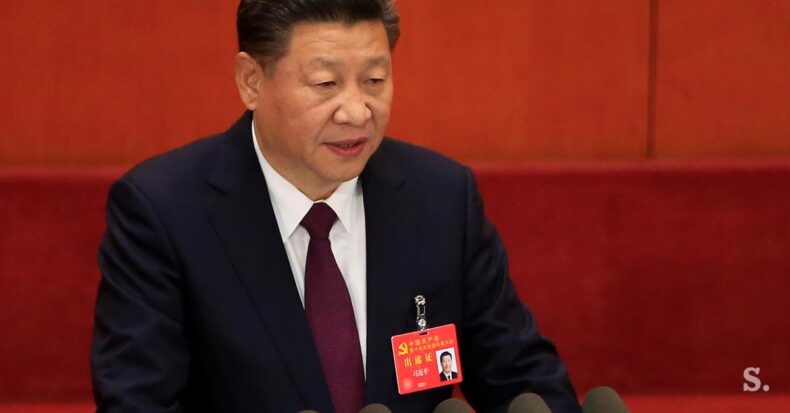The new rules are part of China’s latest efforts to preach morality through censorship.
The new domain for a crackdown by the Chinese government on the tech and entertainment sectors has now turned on to “sissy idols,” “effeminate men” and all things “overly entertaining.”
Wanting to become a country of macho men, China is trying to make this happen by banning “effeminate” males and “sissy” boybands from all media throughout the nation.
The National Radio and TV Administration released a new set of rules recently which mandated the broadcasters to resolutely put an end to sissy men as well as other “abnormal aesthetics”.
It also mentioned the term “niang pao,” that means “girlie guns” which is an insult to effeminate men.
What are the New Rules?
These new media masculinity rules were announced by the Communist Party of China’s (CCP) propaganda department as part of their latest efforts to preach morality through censorship.
While announcing the measures, the CCP’s propaganda department accused some people in the entertainment industry of having a bad influence on the Chinese youth and “severely polluting the social atmosphere.”
The new rules force the broadcasters to follow a “correct beauty standard” and boycott “vulgar” internet celebrities as well as celebrations of wealth and at the same time, promote “traditional Chinese, revolutionary and socialist culture.”
All “idol audition shows” are also banned under the rules and they recommend anyone who has offended public morals and broken the law to be blacklisted.
Additionally, the rules warn the broadcasters to avoid airing anything which is “overly entertaining.”
They also called for the Chinese media to spread positive values and asked the trade associations in the internet and television entertainment industry in China to provide more training and self-discipline.
The guidelines also allowed for marginalization of people who have violated the laws or whose past behaviour was against “public order and morals.”
Moreover, strengthening past rules, the new guidelines also ban huge celebrity pay packages, tax evasion and fake contracts which lead to disguised earnings.
CCP has also targeted its own celebrities who it considers to have stepped out of the line. Chinese authorities have tried to give examples of some celebrities having drug habits or those who indulge in prostitution and have banned such celebrities’’ accounts and erased their contents, while some have also been fined steep money.
Additionally, in the last couple of years, the administration for the film and TV industry has changed which has now put a growing emphasis on socialist values and loyalty to the CCP. This has lead to the production slates of the private sector studios to be taken over increasingly by patriotic content.
Impact of the New Rules
The new media guidelines could have a significant impact beyond China, on the import of foreign entertainment content, particularly from Hollywood, where studios in the past have bowed down to the CCP’S demands in order to showcase their films in the lucrative Chinese market. Hollywood films are already struggling to get released in China this year.
Moreover, the Korean entertainment products were seen to be eased from the restrictions placed three years ago, but even this ease is now suggested to go no further.
The LGBTQ community in China may also feel uneasy because of these rules.
China’s LGBTQ community may also feel deeply uneasy. Although homosexuality was decriminalized in 1997 and is no longer considered a mental illness in China, same sex relations continue to remain a taboo in China.
Gay entertainment content has already remained in a grey zone in China and foreign movies with gay themes such as “Bohemian Rhapsody” and “Call Me By Your Name” have been censored heavily or banned.
Additionally, it is also unclear that how these rules will impact the foreign athletes when they arrive at Beijing for the Winter Olympics to be held in 2022.
Interestingly, the Tech companies are also under pressure due to the new rules as they will be held responsible for enforcement of the rules.
Xi’s Vision or Cultural Revolution 2.0?
Tremendous political power is required to destroy millions of livelihoods and bankrupt large corporations with a single decision.
But it takes extraordinary power to ensure that those most affected by the decision do not speak a word about it.
The new rules suggest that the CCP leadership, in some ways, wishes to return back to a purer and simpler Socialist era. Chinese President Xi Jinping has pledged “national rejuvenation” to Make China Great Again, which he is trying to pull off by strictly controlling all business, culture, religion and education in the country.
But of late, Xi has been on a run as he as taken numerous steps to reform the society, the new media rules are part of it. Therefore, he is receiving both admiration as a bold reformer and criticism as a too-powerful leader steering China towards a 21st Century version of Cultural Revolution.













